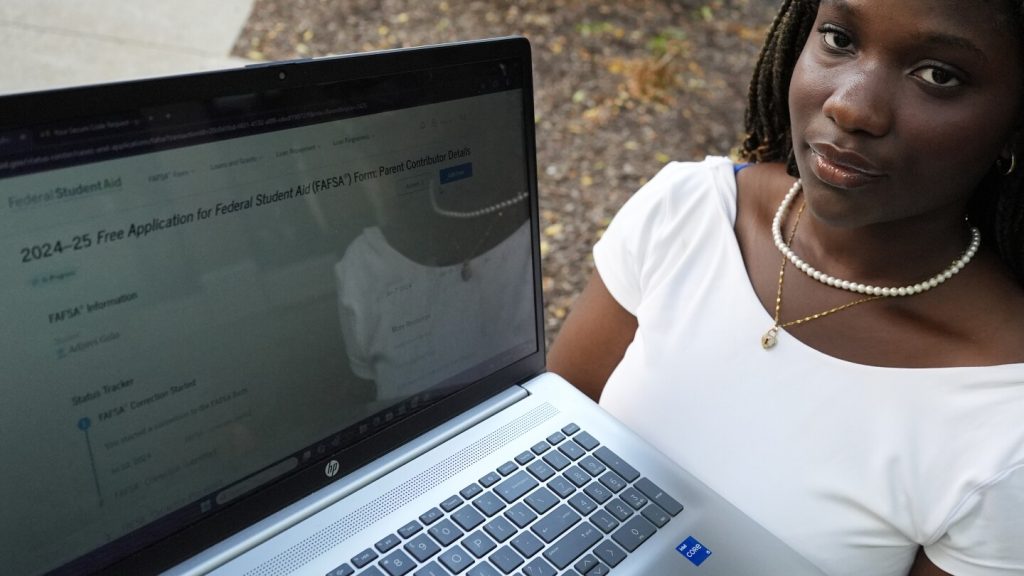The redesign of the Free Application for Federal Student Aid (FAFSA) has caused a 9% decrease in completion rates compared to last year, impacting many prospective college students. This has led to delays in processing financial aid packages, forcing students to make decisions about college enrollment without complete information. For students like Adjovi Golo, who faced glitches with her FAFSA application, the uncertainty led her to choose a college with more merit scholarships but without a complete financial aid package.
The decline in FAFSA completion rates has disproportionately affected low-income students and students of color, raising concerns about the impact on college enrollment. Advocates worry that the delays, coupled with the recent Supreme Court ruling on affirmative action, may result in a less diverse college enrollment cohort. Areas with higher poverty rates and larger minority populations have seen larger declines in FAFSA completions, with students in these areas more likely to have submitted incomplete applications.
Completing the FAFSA is essential for accessing various forms of financial aid, including federal loans and institutional support. The simplified FAFSA form launched in 2023 encountered numerous errors and glitches, complicating the process for students, particularly those with immigrant parents. College housing also became a challenge for students whose families were hesitant to make deposits without knowing their financial aid status, leading some students to choose more affordable options closer to home.
For students facing FAFSA issues, the uncertainty extends even after enrolling in college. Some students, like Golo, have filed paper FAFSA applications to receive finalized aid packages but are still waiting for processing. This uncertainty has left many students unsure of their financial future and has forced some to consider delaying their college enrollment or pursuing alternative options. The impact of these delays on students’ ability to pursue higher education and complete their degrees remains a significant concern for counselors and advocates.
Overall, the FAFSA redesign issues have disrupted the college application process for many students, particularly those from disadvantaged backgrounds. The delays in financial aid processing have forced students to make critical decisions about college enrollment without complete information, potentially impacting their ability to access higher education. As students continue to navigate these challenges, advocates emphasize the importance of addressing the issues in the FAFSA process to ensure all students have equal opportunities to pursue their educational goals.


